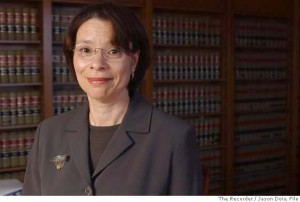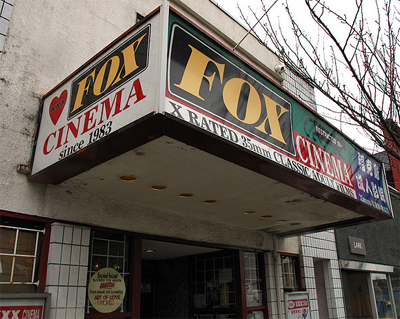 The Heron Bay Homeowners Association is set to win the lawsuit they filed against the City of San Leandro, concerning the City’s decision to give a height variance to Halus Power Systems to build a wind turbine tower on their property, for research and testing purposes. The HOA objected to the turbine for aesthetic reasons, but grounded their legal pleadings on assorted – though very weak – environmental concerns. Still, the judge overseeing the case issued a tentative ruling (TR) granting the HOA’s petition that Halus obtain an environmental impact report (EIR) on the project. The EIR would cost Halus hundreds of thousands of dollars and may very well prompt the small wind turbine company to move out of San Leandro.
The Heron Bay Homeowners Association is set to win the lawsuit they filed against the City of San Leandro, concerning the City’s decision to give a height variance to Halus Power Systems to build a wind turbine tower on their property, for research and testing purposes. The HOA objected to the turbine for aesthetic reasons, but grounded their legal pleadings on assorted – though very weak – environmental concerns. Still, the judge overseeing the case issued a tentative ruling (TR) granting the HOA’s petition that Halus obtain an environmental impact report (EIR) on the project. The EIR would cost Halus hundreds of thousands of dollars and may very well prompt the small wind turbine company to move out of San Leandro.
The City is challenging the tentative ruling and a hearing has been scheduled for February 11. Judge Evelio Grillo, somewhat unusually, did not post the actual contents of the TR online and, instead, only e-mailed it to the lawyers. It’s thus impossible to actually comment on his reading of the case. However, it’s rare for a judge to change his position once a TR is filed. Best known as the judge in the Jahi McMath case, Grillo has a reputation for being smart and “by the book.” Still, the City’s attorney – in particular, Meyer Nave‘s Edward Grutzmacher, who seemed to be the principal litigator in this case – didn’t precisely ingratiate himself to Grillo by getting involved in petty legal shenanigans early in the procedures. Now, Halus and San Leandro taxpayers may be paying for their lack of professionalism.
When plaintiffs sue a city under the California Environmental Quality Act (CEQA), they need a copy of the administrative record detailing all the proceedings on the matter before the different City bodies. This has to be assembled and certified by the City and the plaintiff must pay for it. The City estimated that it would cost between $4800 and $6200, which the plaintiff’s lawyer accepted. The City started compiling the record, but did so at a slow pace. There are e-mails after e-mails from the plaintiff’s lawyer asking for updates on the status and cost estimates of the compilation. Replies by Grutzmacher were less than responsive. Finally, Grutzmacher said the record was ready but the HOA’s attorney could only have it after delivering a $24K+ check. He contended that it had taken 187 paralegal hours to compile the record, each charged at $125/hour. He would not, however, give an actual accounting of how they came up to that amount and instead held the record hostage – though at one point, he gave the HOA’s attorney a one-time, take-it-or-leave-it opportunity to get the record for about $20K. Finally, the HOA’s attorney had to ask the Court to force the City to give them the record. The Court ruled that they could have it upon payment of $6200.
While I am the Heron Bay’s HOA number one critic – I thinks this lawsuit is an abuse of process, based purely on prejudice and animus by the HOA’s leadership -, the behavior of the lawyer representing the City was just as contemptible. The impression I got after reading the e-mail exchange between Mr. Grutzmacher and the HOA’s lawyer, was very much that Mr. Grutzmacher was playing a game: first denying the HOA’s lawyer the information he needed, then holding the record hostage by demanding an absurd amount of money, and then, when the HOA’s lawyer asked for an explanation of the charges, by falsely claiming that the HOA lawyer wanted to get the whole thing for free. Mr. Grutzmacher’s behavior on e-mails and pleas was not only childish, but offensive. We can speculate how the judge reacted to Grutzmacher’s attempt at gamesmanship.
We will not know Judge Grillo’s reasons for ruling for the HOA until the hearing – unless one of the parties decides to release the brief or some enterprising journalist goes to the trouble of obtaining it -, but we do know that it’s likely that these legal shenanigans will cost the taxpayers plenty. If the HOA wins, the City will not only be stuck with having to pay its own attorney costs, but also the $25K Grutzmacher alleges it cost to assemble the administrative record. It will also have to pay for the court costs and the HOA’s attorney’s fees, which are much greater than they would be if he didn’t have to spend countless hours fighting Grutzmacher over the administrative record. Once again, Meyers Nave profits from getting the City into a legal mess and the taxpayers are left to pay for it.
This was a case that the City should have won easily. But Meyers Nave has shown that it either lacks the competence or the will to actually offer sound legal representation for the City. Indeed, the tens of thousands of dollars their botched representation will cost this City in this case pales in comparison to the almost $3 million the City lost on the Faith Fellowship case, the $4 million+ it lost on the former Albertsons’ property case and the almost $8 million it lost on the King Family Trust lawsuit. While these were all lawsuits that the City should not have had to face to begin with – and wouldn’t, if they had gotten competent advise from the let go -, Meyers Nave poor representation definitely did not help along the way.
I said it almost three years ago: “It’s time to fire Meyers Nave” and it’s even more true today. San Leandro’s taxpayer money should go to pay for fixing our streets, housing our homeless and providing after-school activities for our children. It should not go to pay for expensive lawyers who give the City bad legal advice, and then benefit when the City gets sued.



 It’s worse than I thought, but is it intentional or just careless?
It’s worse than I thought, but is it intentional or just careless?